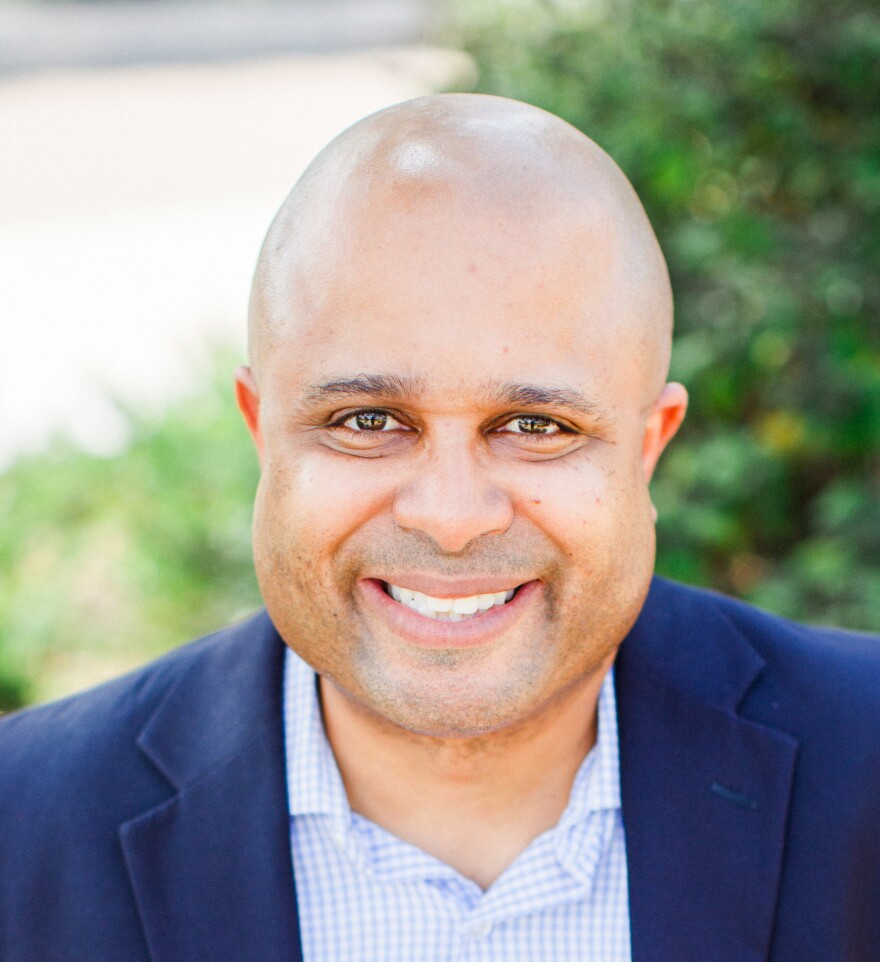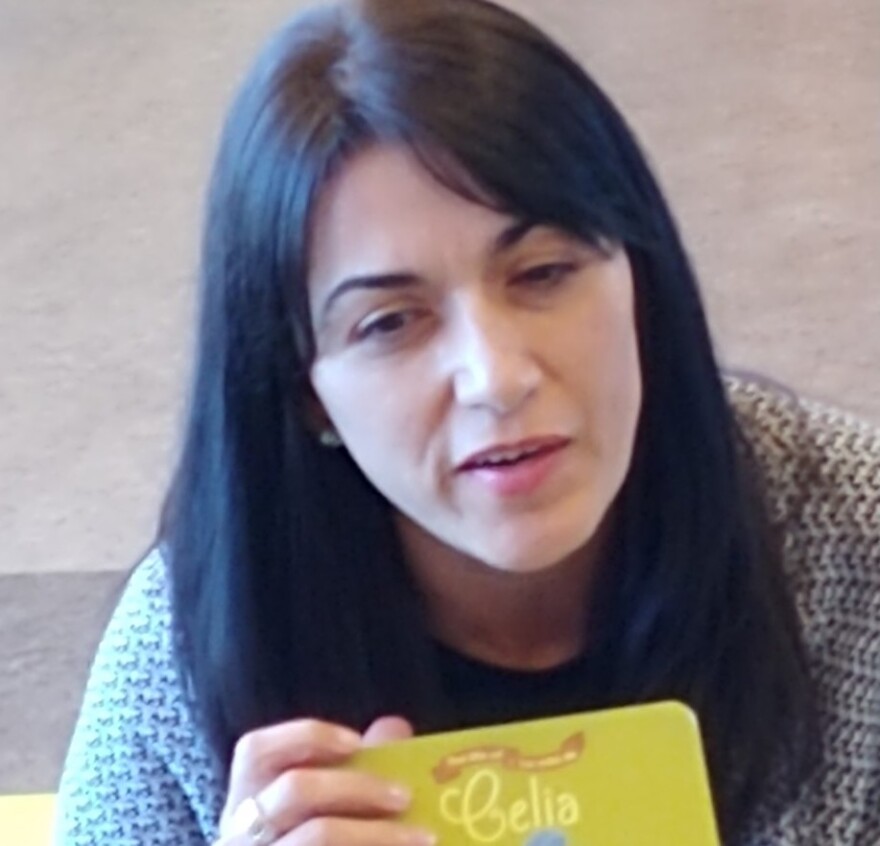It’s been almost a year since the COVID-19 pandemic closed North Carolina schools. As in-person classes resume, policymakers, educators and community groups are trying to make up for lost learning.
Every state and school district has its own grim numbers illustrating the academic cost of COVID-19. In Charlotte-Mecklenburg Schools 20% of students failed English language arts classes the first semester of this year, up from 7% the year before.
And the districtwide average masks the depth of damage in some communities. At 12 CMS schools, more than half of third-graders had D’s or F’s in reading during the first semester — a troubling sign for their academic future. Those 12 schools serve mostly Black and Hispanic students from low-income neighborhoods.
RELATED: CMS Grades Point To Where COVID-19 Has Hit Hardest
Munro Richardson, executive director of Read Charlotte, said that’s no surprise given that students didn’t go into the pandemic on equal footing.

"If you look at 2019, which is the last year that we had third grade state test scores, 72% of white third-graders were reading at college and career ready," he said. "But it was only 35% for Black third-graders and 29% for Hispanic third-graders."
Richardson, whose group works to build early reading skills, says there’s a risk that the pandemic could leave a lasting scar — like a forest fire marking the rings of a growing tree.
"I’m worried about this negative tree ring, if you will, for our children of the pandemic," he said. "And so it’s really up to us as adults to try to come together and both identify where our kids are at and do our best work to get them the support, but it’s going to take all of us."
Summer School Is Essential
Few would argue with that assessment.
In North Carolina’s General Assembly, the catch-up effort is focused on summer school. House Bill 82, which passed the House unanimously last week, would require all districts to offer approximately six weeks of summer school for K-12 students who are at risk of failing their current grade. Districts would have to offer instruction in core academic subjects, as well as physical activity, enrichment, meals and transportation.

State Rep. Jeffrey Elmore, a North Wilkesboro Republican who is one of the bill’s sponsors, is also a teacher. He said summer school won’t fix all the problems, but it’s a necessary component.
"This is like giving medicine to someone that is sick," Elmore said. "We have to give medicine for them to get better, and I think this is a step in the right direction."
Rep. John Torbett of Gaston County, co-chair of the House Education Committee, said the summer program is central to Republican leaders’ vision of addressing pandemic challenges. He described the six-week program as "old school, kind of hard-core summer school — even though we’re calling it a 'camp,' it’s summer school where you have your basic subjects taught."
Torbett said he hopes to see the bill approved and signed into law by the end of March so districts can start hiring in April.
CMS Seeks Joyful Experience
In CMS, Chief Academic Officer Brian Kingsley said planning for a summer program was well under way when the bill was introduced. The statewide mandate introduces questions, he said, but overall "I think it helps put a little bit of energy and wind in our sails."

The summer program is optional for families, and Kingsley said that makes it essential that the classes don’t feel like a tedious remedial session.
"It puts the onus on us as a district to create something that’s joyful," he said. "How do we make sure a kid gets out of bed in the morning on a Tuesday in July and they want to come to school?"
Kingsley said the influx of COVID-19 relief money from the federal government — along with support from state lawmakers — has put districts in an unusual position.
"I think in my career this is the one time that I would say with confidence that I think we have the resources to do what we’re dreaming of," Kingsley said.
But he said the demands of teaching during the pandemic could make it difficult to recruit teachers to work during the summer.
"Our teachers are exhausted," he said. "They have been stretched and pulled to think and teach in creative ways and that’s not going to go away any time soon. In fact, it’s going to get maybe even more complex in the next few weeks."
Connecting With Absent And Lagging Students
CMS officials said the first step is figuring out where each child stands — not just whether they’re passing or failing a class, but which skills they’ve mastered and which they’ve missed.
CMS leaders said failing grades often correspond with high absence rates. Data for the first semester shows about 30 schools where at least 10% of students were absent most months. So the first step toward closing gaps is connecting with families to figure out how to get their kids reconnected.

Alba Sanchez, who works with immigrant families through Charlotte’s Latin American Coalition, said that’s essential. Too often, Sanchez said, parents lack the technology to connect with schools and can’t get a Spanish-speaking staff person when they call.
"So those kind of things discourage families, because they try to do the best they can but they feel like it’s never-ending," she said.
She said all schools need staff who can not only speak the language but ask the right questions: Do families have an email address and know how to send email? Do they know how to attach documents? Can they use the Power School system used to track student progress?
"All of those small things will make a difference," Sanchez said — but only if staff can build ongoing, trusting relationships with parents.
Advocates and CMS officials agree that designing successful summer programs that attract students will require working with families and neighborhood groups to tailor the offerings.
Stephanie Sneed, project lead for the Westside Education Think Tank, said that means working with grassroots neighborhood groups instead of just turning to the big nonprofit groups.
"Parents on the west side are like, 'You are not reaching us. You're not reaching the people who have direct influence and impact on the community,'" Sneed said.
Assessing Skills And Gaps
A big focus of fourth quarter is going to be on sizing up skills and identifying the gaps. Beth Thompson, a CMS assistant superintendent, said that means striking a balance between testing and other ways to evaluate work. She said no one wants to spend the whole fourth quarter taking multiple-choice tests.
Administrators will use the data to figure out what’s essential for summer school. The one thing Thompson said is sure to be on the must-do list is early reading skills.
"What kids learn in kindergarten, first and second grade is fixed and it is finite, and they have to learn it to be successful in their future reading life — which is everything," she said.
Outside Groups Play A Role
CMS isn’t alone in the quest to figure out what students need and how to help them catch up. Richardson, the Read Charlotte director, said the pandemic brought huge challenges for outside groups that support students.
RELATED: Volunteers Can Aid Students' Recovery From Pandemic Learning Loss
Consider groups like the YMCA, the library and Freedom School Partners that do summer learning programs. Normally by now they’d be advertising their programs. This year, Richardson said they’re still facing fundamental questions: "Are they going to be able to get into CMS buildings? Are they going to be able to have transportation? They’re going to have to make decisions about in-person or not."
On the plus side, Richardson said the abrupt closing of schools prodded dozens of outside groups to work with CMS to identify new needs. And the fact that tutoring groups were forced to go virtual has actually brought a benefit.
"Prior to COVID we had what are referred to as 'volunteer deserts' in the county — places where you have kids, you’ve got schools, but it was hard to get volunteers there to tutor, just because of the location or the distance from employment centers," he said.
Online tutoring let volunteers reach all locations, and Richardson said he believes that will continue even after the pandemic recedes.
Educators and advocates say bringing back in-person classes and offering summer school is a good start. But few believe it will be enough to make up for the disruption of the pandemic — let alone the preexisting conditions. Many talk about a two-year recovery period.
CMS Deputy Superintendent Matt Hayes said that means meeting the direst needs now while keeping long-term strategies in mind.
"I won’t even say that we hope to — I will tell you that we will come out of this better than we went into it," he said.
For instance, the online lessons CMS created this year will still be used, but in different ways. Report cards may become more detailed. And even after COVID-19 fades from the scene, remote learning is likely to play a larger role than anyone could have imagined a year ago.





